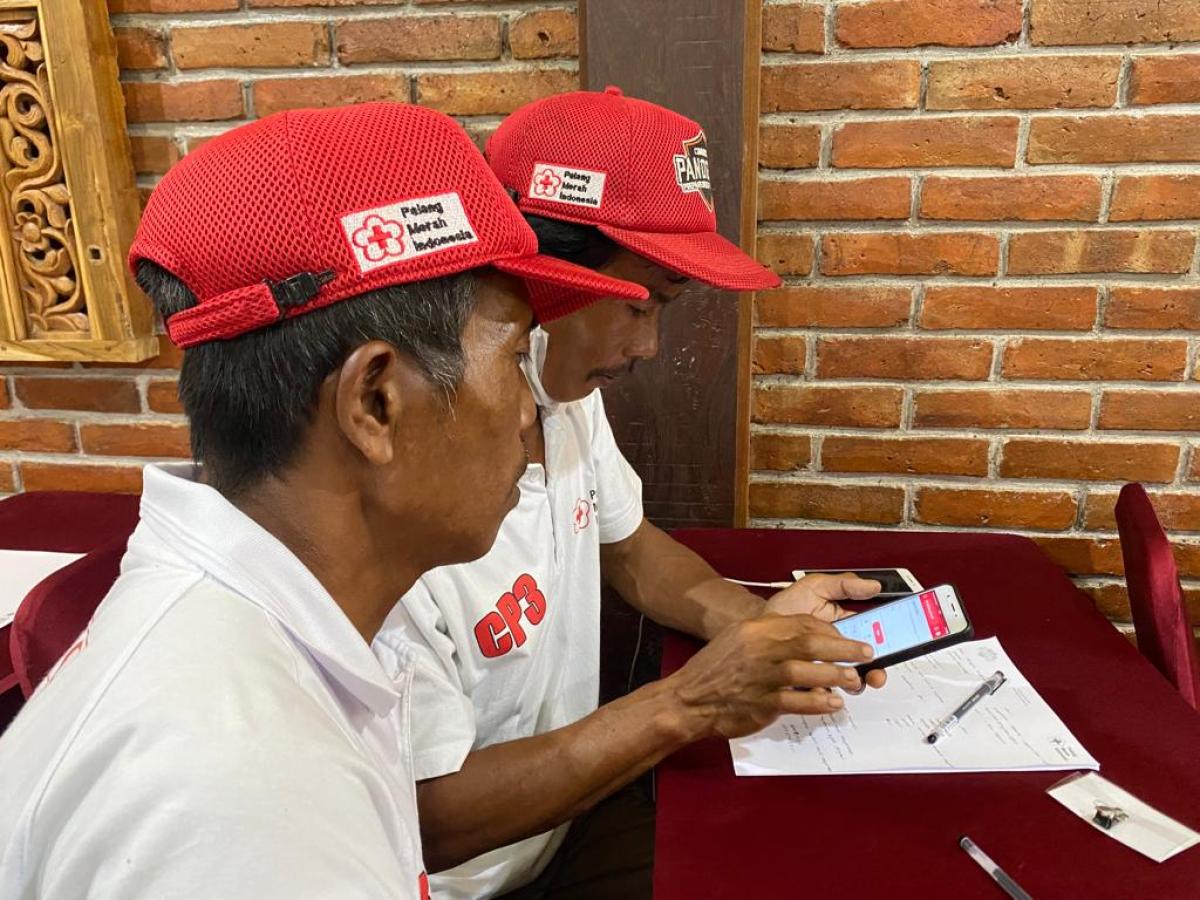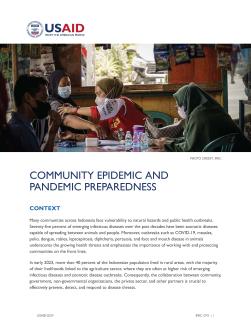Context
Many communities across Indonesia face vulnerability to natural hazards and public health outbreaks. Seventy-five percent of emerging infectious diseases over the past decades have been zoonotic diseases capable of spreading between animals and people. Moreover, outbreaks such as COVID-19, measles, polio, dengue, rabies, leptospirosis, diphtheria, pertussis, and foot and mouth disease in animals underscores the growing health threats and emphasizes the importance of working with and protecting communities on the front lines.
In early 2023, more than 40 percent of the Indonesian population lived in rural areas, with the majority of their livelihoods linked to the agriculture sector, where they are often at higher risk of emerging infectious diseases and zoonotic disease outbreaks. Consequently, the collaboration between community, government, non-governmental organizations, the private sector, and other partners is crucial to effectively prevent, detect, and respond to disease threats.
As a result of Indonesia's complex and vast geography, combined with dynamic population pressures, many communities are vulnerable to these natural hazards and public health crises. At the same time, Indonesian communities can play a significant role in preparing for and mitigating future health risks.
USAID Community Epidemic and Pandemic Preparedness Program (CP3)
USAID CP3, implemented by the International Federation of Red Cross and Red Crescent Societies (IFRC) with the Indonesian Red Cross (PMI), strengthens the ability of communities, civil society, and other partners to prevent, detect, and respond to disease threats and prepare for future challenges.
In Indonesia, this program ensures that communities receive critical information about disease transmission and how to prevent it, and establishes systems to detect outbreaks and communication mechanisms for timely information sharing with the healthcare system and to increase community engagement. USAID CP3 also plays a role in preparing first responders to assist the Government of Indonesia in responding to current and future outbreaks.
Results
- Strengthened community-based surveillance systems through engagement with schools,
universities, and health facilities through community events and other activities, and trained community and religious leaders, farmers, media workers, and relevant staff from companies; - Helped develop and launch the Coordinating Minister Regulation on the Prevention and Control of Specific Zoonoses (PERMENKO 7/2022) that can spread from animals to humans, including community based surveillance (CBS);
- Trained over 1,600 volunteers in epidemic preparedness and response;
- Supported PMI health facilities in their infection prevention and control programs;
- Facilitated national-level expansion of CBS through the adoption of the PERMENKO 7/2022 and implementation of the CBS joint roadmap, along with enhanced data management for epidemic preparedness and response; and
- Developed mapping tools to provide critical data needed to help responders make evidence-based decisions during health crises.
Contact
Monica Latuihamallo, USAID at mlatuihamallo@usaid.gov
Dwi Handayani, IFRC at dwi.handayani@ifrc.org


